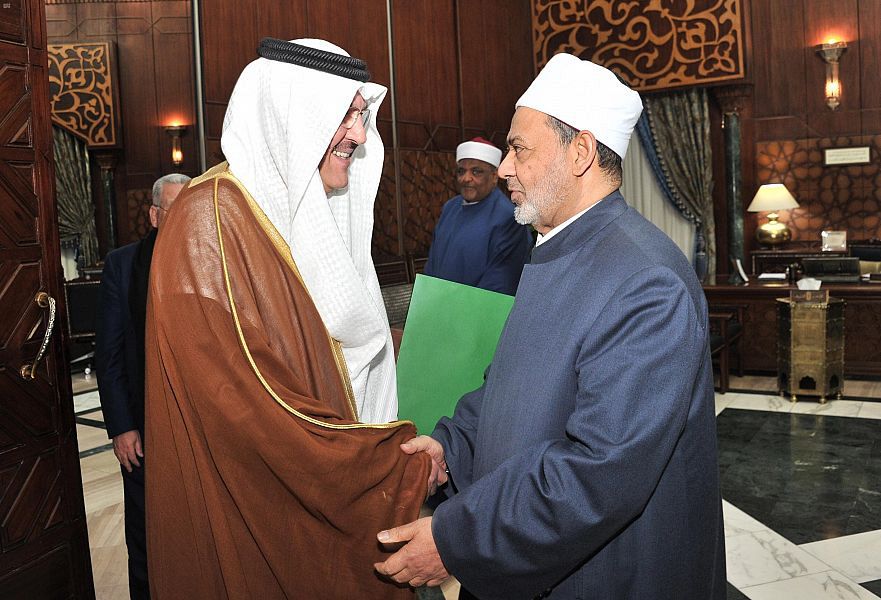
Egyptian President Abdel Fattah el-Sisi issued a decree appointing four new members to al-Azhar Council of Senior Scholars.
Azhar Grand Sheikh Ahmed al-Tayeb announced a “special program to train foreign imams” saying they are being trained to deal with terrorist rhetoric.
The Council of Senior Scholars was restructured in 2012 to carry out several specializations, most prominently the representation of jurisprudential and legal opinion on the global Muslim issues.
The Council consists of almost forty members of the greatest scholars of Al-Azhar from all the four schools of jurisprudence.
The presidential decree included: professor of Criticism and Literature at the Faculty of Arabic Language al-Said al-Sayed Obada, professor of Interpretation at the Faculty of Fundamentals of Religion and Advocacy Hassan Ahmed Gabr, professor of Rhetoric and Criticism at al-Azhar’s Faculty of Islamic and Arabic Studies for Girls Mahmoud Tawfik, and professor of Emerging Comparative Jurisprudence at the Faculty of Sharia and Law Mohamed Hosni.
Meanwhile, Sheikh Tayyib received President of the Austrian National Council Wolfgang Sobotka and the accompanying delegation in Cairo.
Tayyib affirmed that Azhar is responsible for spreading the values of tolerance, dialogue, and acceptance, adding that the institution always communicates with all major religious institutions in Europe.
He stressed that the “Document on Human Fraternity for World Peace and Living Together” signed with Pope Francis is a milestone in relations between Christianity and Islam but also represents a message with a strong impact on the international scene.
The Document was signed in UAE in February last year and adopted “a culture of dialogue as the path, cooperation as the code of conduct, and reciprocal understanding as the method and standard.”
They also “resolutely declare that religions must never incite war, hateful attitudes, hostility and extremism, nor must they incite violence or the shedding of blood. These tragic realities are the consequence of a deviation from religious teachings. They result from political manipulation of religions and interpretations made by religious groups.”
Sobotka praised Egypts effective role in combating terrorism, extremism, and illegal migration, adding that Egypt is a pillar of stability in the Middle East and a beacon for moderate Islam.
He called on the international community to stand together to eliminate these phenomena. He expressed Austria’s keenness to benefit from the Egyptian experience in reforming religious discourse and from the experience of al-Azhar.








